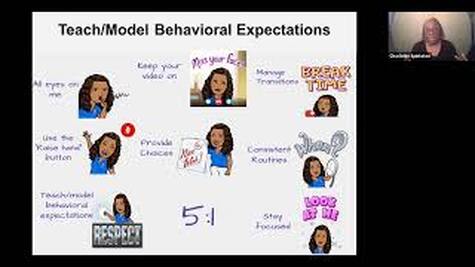Social Emotional Learning
Social and emotional learning (SEL) is the process through which all young people and adults acquire and apply the knowledge, skills, and attitudes to: develop healthy identities, manage emotions and achieve personal and collective goals, feel and show empathy for others, establish and maintain supportive relationships, and make responsible and caring decisions. It is an integral part of human development and education.
Click here to return to Training Workshops and Series.
Click here to return to Training Workshops and Series.
Introductory Level Training
|
Positive Behavior Support
In this recorded workshop, facilitated by Dee Spinkston, participants will understand positive behavior support (PBS) as a continuum of support for all students. We will identify and explore successful interventions for individuals and groups of young people. participants will explore and develop understanding of the continuum of interventions to promote youth self-regulation and social competency. |
Register here to request a link to the Positive Behavior Support Training video. After watching the video you will be required to complete the Positive Behavior Support quiz to receive credit for this training.
Intermediate Level Training
|
Partnering with Young People...Even When it's Hard!
Mondays, Spring 2024 April 22nd, April 29th, May 6th, May 13th 10:00am - 12:30pm Facilitated by Matt Dunkel Register Here As youth workers, we believe that all young people can contribute positively to our communities. And we believe that sharing power with young people can enhance our collective work. But the day-to-day realities of our work don’t always match those beliefs. Our roles present intense demands. Young people bring a wide range of needs. Sometimes our practices fall short of meeting those needs. And unmet needs can contribute to youth behaviors that negatively impact others. In these moments, it’s easy to see young people’s behaviors as “the problem.” But if we re-ground ourselves in our beliefs, we can find other pathways forward. Instead of blaming young people, we can seek to better understand them. We can work with them to make things better. And in doing so, we can learn from and with young people to improve our own practices as youth workers. |
This four-part series will offer a supportive environment to practice this youth-centered professional learning process. Outcomes will include:
Participants can expect some reading, a youth observation, and one initial action step as “pre-work” in between sessions. Readings come from the book Troublemakers: Lessons in Freedom from Young Children at School. All participants will receive a free copy of the book. |





